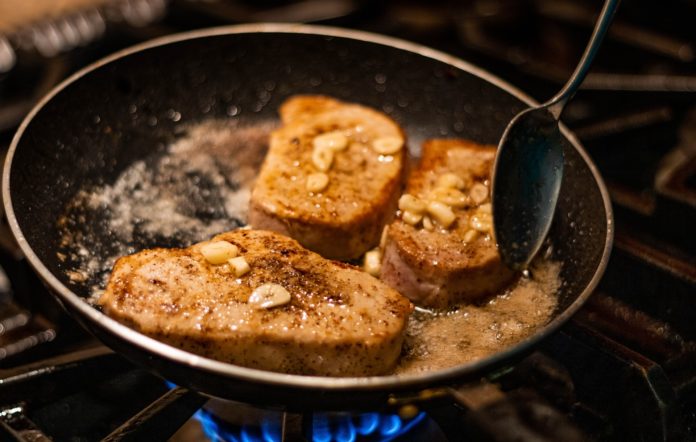Butter and oil are two of the most essential ingredients in cooking. As the first thing we add to the pan for frying or sautéing as well as a main ingredient in most baked goods, just about anyone who’s been in a kitchen will have a decent familiarity with each of them. But while they may seem more or less interchangeable, there are several factors to consider when deciding what to drizzle into your pan.
Health
With the commonality of heart disease and high blood pressure, many people may wish to steer clear of saturated fat. Butter is a saturated fat—it is solid at room temperature—while oil is unsaturated. That being said, new research shows that the “saturated/unsaturated” distinction may not be as important as we thought, and in some cases butter might even be beneficial. If you’re unsure what’s best for your personal health, consult your doctor about saturated fats.
Flavor
Butter has a distinct flavor and richness often found in western cooking. It may also be found in Indian dishes in the form of ghee. Butter will round out the flavor of comfort foods like pancakes, hash browns, or grilled cheese particularly well. On the other hand, oils come from many different sources, meaning there are many flavor profiles to choose from. Olive oil, sesame oil, coconut oil, and more all have completely different flavors and will mix will different dishes well. However, these more diverse oils won’t handle high heat as well as normal canola oil or butter, and they are generally a lot more expensive.
Deep Frying
If you are deep frying, you will probably want to stick to regular canola oil. This will handle the heat without burning or browning, and will give you a more even crusty outer layer than butter. That being said, if you want a more caramelized quality on your fried food, you can give butter a try as it will brown in high heat. Just be careful not to let it get too dark, as it can burn.






